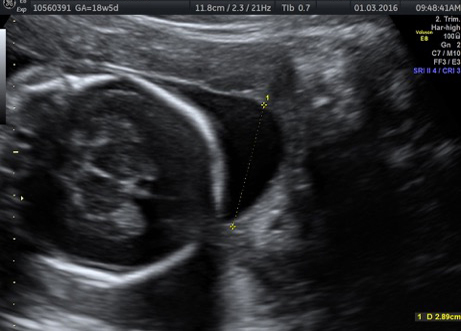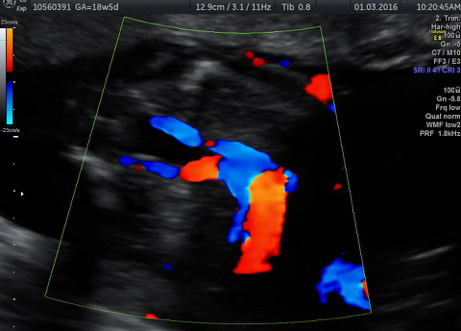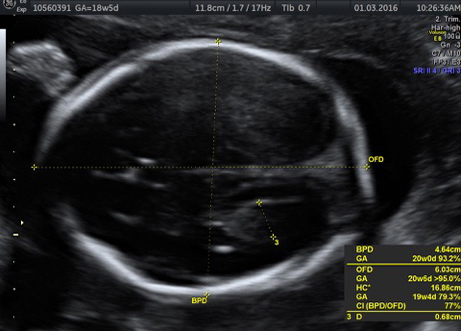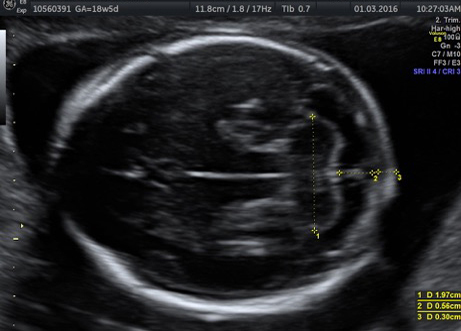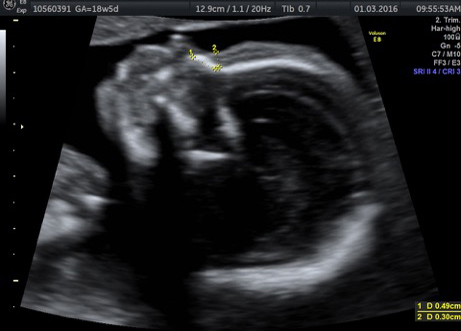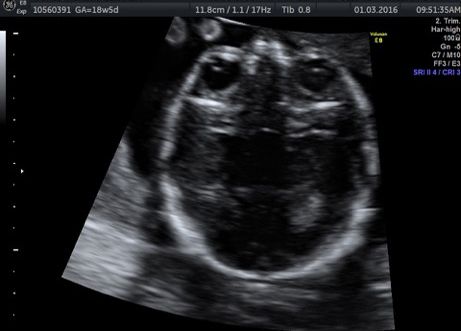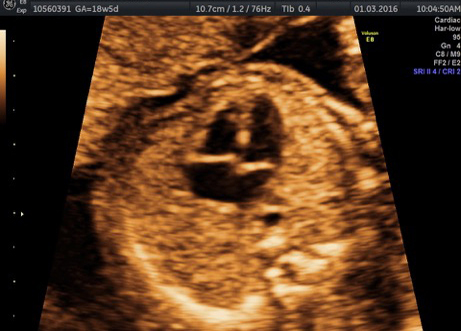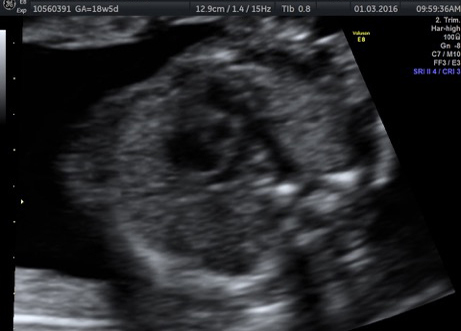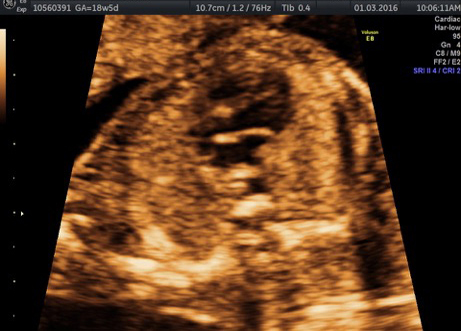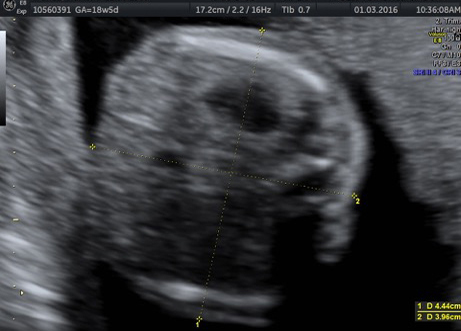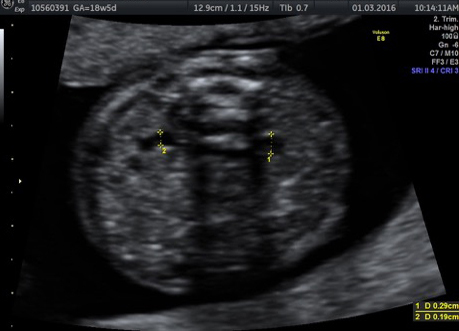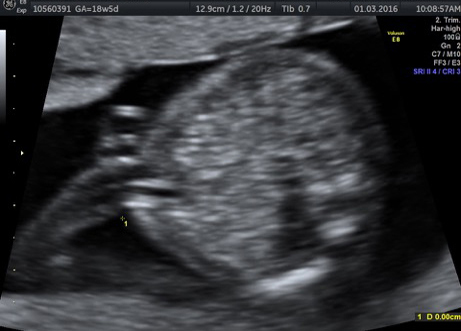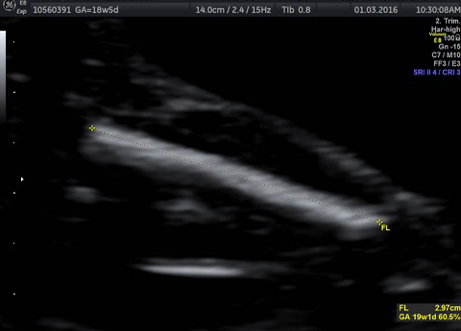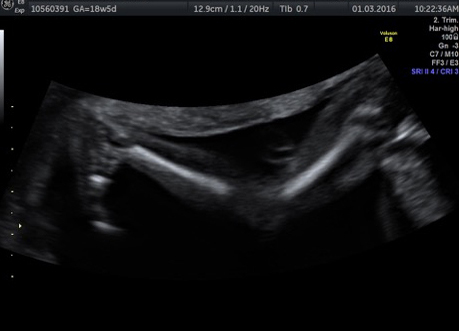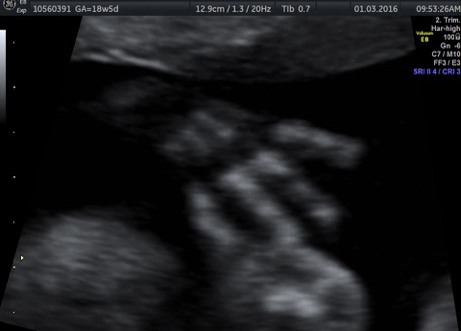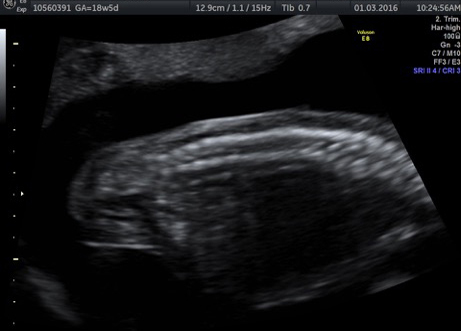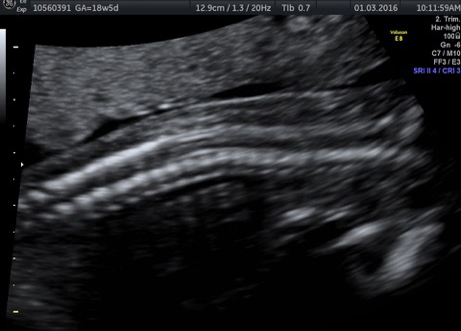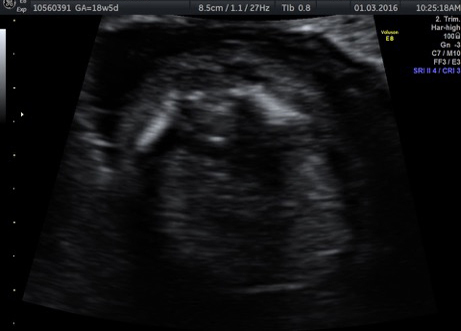Anencephaly occurs early in fetal development when the neural tube does not close. It occurs in about 1 out of 10,000 births, but the exact number is unknown because many of the pregnancies end in miscarriage. Having one infant with this condition increases the risk of having another child with a neural tube defects.
Many tests can be performed to diagnose the condition, including ultrasound. Other tests include amniocentesis, a pre-pregnancy serum folic acid test and a check of serum alpha-fetoprotein levels.
The exact reason for the defect is unknown, but possible causes include environmental toxins and a low intake of folic acid by the mother during early pregnancy.
No working tissue has developed above the face, so there is no brain and no skull. Unfortunately there is no way to fix this problem, and survival after birth is not expected.




